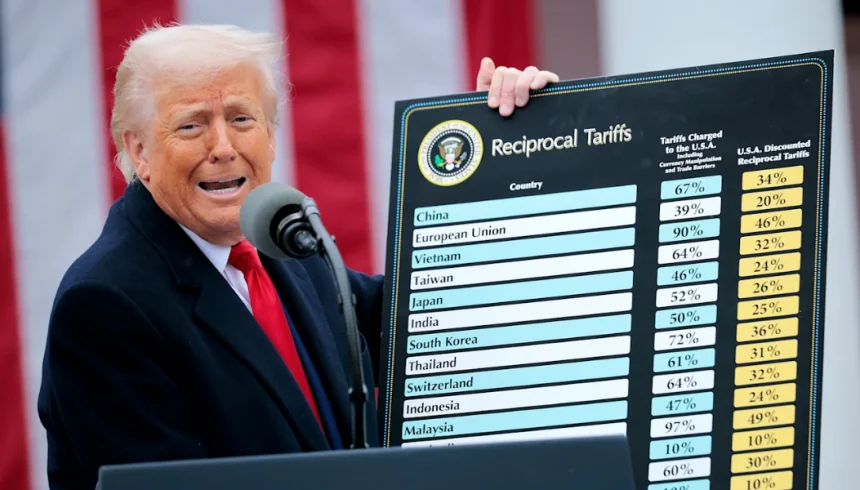Nigeria’s financial system faced a fresh wave of pressure on Monday. This came after new tariff threats from Donald Trump triggered a global market sell-off. The ripple effect hit local bond and currency markets hard, shaking investor confidence across the board.
Early in the day, the Central Bank of Nigeria acted fast. It sold $124 million at rates between N1,595 and N1,611 per dollar. This followed a $197 million sale just days before. These moves were aimed at calming the FX market. But despite the intervention, the naira continued to struggle. Demand for the dollar remained high, and supply stayed tight.
The impact was felt in the Eurobond space too. Investors began dumping Nigerian debt. Some Eurobond prices fell by up to $5. Yields jumped to 12%, a sign that borrowing costs for Nigeria could climb. Analysts believe this sell-off has more to do with global fears than local fundamentals. Yet the result is the same Nigeria may now find it harder to borrow abroad.
The main trigger for this global panic was Trump’s latest trade remarks. He floated a 10% import tax across the board. He also proposed new duties targeting goods from China and Mexico. Global investors reacted sharply.

The S&P 500 futures dropped by 3.1%. Nasdaq futures fell even harder. In Asia, Hong Kong’s stock market plunged by 13%. That’s its worst single-day crash this century. Europe also saw big drops. Germany’s DAX fell 6.4%, while the FTSE 100 lost over 5%.
This market rout could not have come at a worse time for Nigeria. The government is relying on international loans to fund its budget and key projects. Rising yields may now derail those plans. Borrowing will cost more. Fiscal pressures could increase.
The Central Bank has been proactive. But experts say more is needed than just selling dollars. A clear, long-term foreign exchange strategy is key. Traders want to know what’s next. So do foreign investors. Without strong communication, confidence may keep falling.
Nigeria’s economy is now exposed to global winds. What began as a trade war threat in Washington is now shaking policies in Abuja. Policymakers must act with urgency and precision. If not, the storm could get even rougher.



